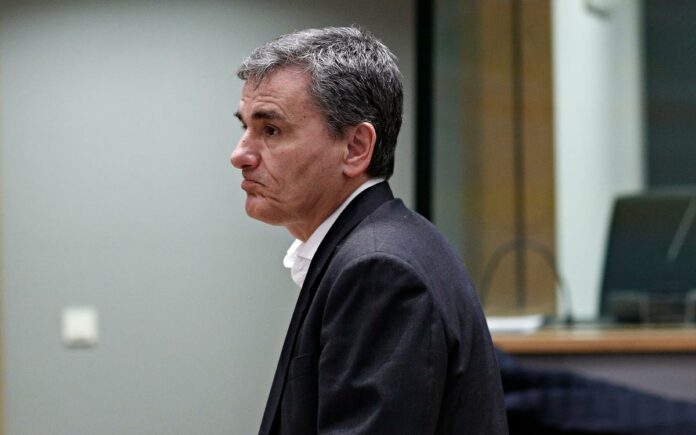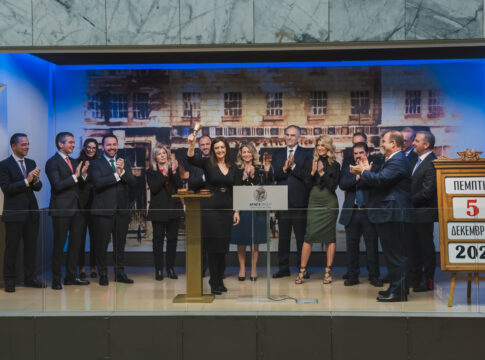Greek Finance Minister Euclid Tsakalotos embodied the political cliché of being “cautiously optimistic” when asked if a scheduled social security spending reduction – set for January 2019 – will be avoided after all, with his statement appearing as part of an interview posted by a Greek-language news site on the same he was in Berlin for a PES Ecofin Ministerial Network meeting.
Tsakalotos met with German FinMin Olaf Schotz and EU Commission Pierre Pierre Moscovici in the German capital, with press reports out of Athens later stating that the Greek side formally tabled a request that the planned austerity measure be suspended. Tsakalotos, according to a press release issued out of his ministry in Athens, said discussions should also begin on how to exploit the “fiscal space” up until 2022.
The exact size of oft-cited “fiscal space”, above the 3.5-percent primary budget surplus, and measured in euros, remains to be calculated, he reportedly told his high-ranking interlocutors in Berlin.
In an interview posted by the site “Newpost” on Wednesday, Tsakalotos expressed a hope that “reason will prevail” in attempting to persuade creditors that a new round of pension cuts is unnecessary in Greece.
In echoing the narrative articulated by the leftist-rightist coalition government immediately after the official conclusion of third memorandum (Aug. 20), Tsakalotos said pension cuts are not a structural reform, arguing that the measure will not affect the sustainability of the country’s social security system.
“We have the necessary fiscal space in order to implement a portion of the countervailing measures that are targeted to society and growth-friendly, without reducing pensions,” he was quoted as saying, referring to a package of “positive measures” agreed to with creditors in tandem with more austerity.
The main argument by the mostly leftist Tsipras government is that annual primary budget surplus targets, set at 3.5 percent for this year and through 2022, are not only being achieved but exceeded. Critics and skeptics, in the political opposition and the IMF, among others, point to a “tax safari” unleashed against Greece’s middle classes and consumers in 2016, sharply curtailed public investments and state budget spending cuts as responsible for the ambitious fiscal targets.
In pointing to the specific fiscal targets, Tsakalotos claimed that even the IMF is now beginning to admit that the 3.5-percent annual target (compared to GDP) will be exceed up until 2022.














